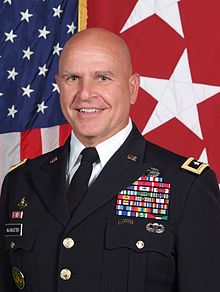With the resignation of National Security Adviser Michael Flynn, and the reports of several FBI investigations of alleged Trump campaign contacts with Russian intelligence officers, there is heightened interest in all aspects of our relationship with Russia. I
previously discussed concerns about a Russian spy boat off the coast of the United States. This post will focus on reports of Russian violation of the Intermediate-Range Nuclear Forces Treaty, also known to cool people in the know as the "INF" Treaty.
First some background on the treaty itself. During the 1970's, the USSR began to develop and deploy an intermediate nuclear armed missile known as the SS-20, which improved the Soviet's ability to reach European targets. In response, NATO began to deploy is own intermediate nuclear missiles (ground-based cruise missiles and the Pershing II missiles. NATO also sought to reach an agreement with the Soviets, but the Soviets were not receptive until Mikhail Gorbachev became the Soviet General Secretary. The US and NATO had several non-negotiable demands: that the Treaty be global in scope (and not just apply to missiles in Europe) and that it not apply to British and French missiles.Ultimately, the USSR and the US agreed to a worldwide elimination of all ground-launched intermediate missiles (defined as missiles with a range of 300-3400 miles). This resulted in the elimination of existing missiles on both the US and USSR sides, but did not effect the French or British arsenals.
Russia is not subject to the Treaty as a successor State to the USSR, and it has shown some signs of buyers remorse. It has noted its concern that nations around it--such as France, the UK and China, are not subject to these restrictions. It has also argued that the development of a missile defense system in Europe has changed the strategic balance, and this might make termination of the INF Treaty inevitable. Nonetheless, Russia has not taken steps to terminate the Treaty.
The recent controversy about alleged Russian violations of the INF Treaty have been years in the making. In July 2014, the United States first officially declared that Russia was in violation of the Treaty by testing a new cruise missile. The Russians denied that this was the case, and alleged that the U.S. itself was in violation of the INF Treaty (by the missiles it uses as targets for the missile defense system, among others). The US formally initiated the dispute mechanisms in the Treaty (the first time this was done), and the parties met to discuss the violations in November 2016. The
New York Times has
now reported that officials believe that Russia has gone beyond mere development of the missile and has begun to produce enough cruise missiles to deploy them.
Almost all that is occurring is highly classified and is happening behind closed doors. We don't even know the Russian explanation about why the new missile does not violate the Treaty. Nonetheless, this issue is raising several sets of questions?
First, what is Russia attempting to accomplish by developing a cruise missile capable of hitting targets in Europe? I can only offer speculation, but there are some obvious possibilities. We know that Russia is very concerned about the development of even a modest missile defense system in Europe. Russia is also concerned about the fighter-aircraft-based nuclear weapons in the NATO arsenal. It may well be that Russia is developing the missile as a bargaining chip to be used in a negotiation to get rid of both the aircraft-based nuclear weapons and the missile defense system. Alternatively, the missile system may be part of its strategic efforts to put a wedge between US and European countries on a security issues.
Second, what are the possible US responses? One option, of course, would be to terminate the agreement, and build a new cruise missile system to counter the Russian systems. The downside to this option is that it will require the costly development of a missile not even on the drawing board, with little apparent strategic advantage. I can think of much ways to speed our defense dollars. Because the treaty only applies to ground-launched systems, the US could also deploy air and ship based systems. Finally, of course, the US could use this dispute to negotiate a broader agreement that could, for example, place limits on tactical nuclear weapons in Europe.
The real question on everyone's mind, of course, is what President Trump will do on this issue. To be fair to President Trump, the Russia-U.S. meeting on this issue only took place in November, and both the department of Defense and the Department of State may still be developing recommendations for the President. In light of the swirling taint of scandal regarding his campaigns relationship with Russia, however, it needs to develop a response soon.
It is in the interest of the United States to keep the INF Treaty in place. The elimination of an entire type of weapon system was a huge accomplishment, and a new arms race concerning nuclear weapons in Europe would hardly be to our advantage. Still, the Treaty violations, if verified, cannot go unanswered.
A good resource on this issue, by the way is an I
ssue Paper issued by the Arms Control Association.




















